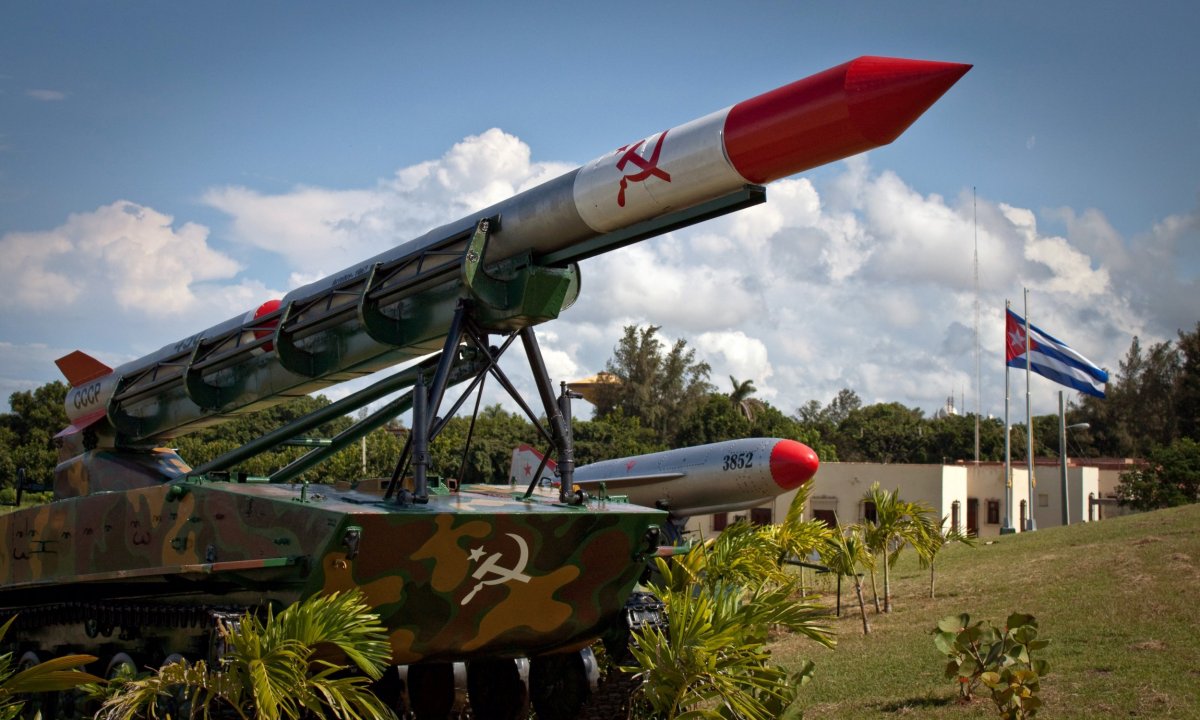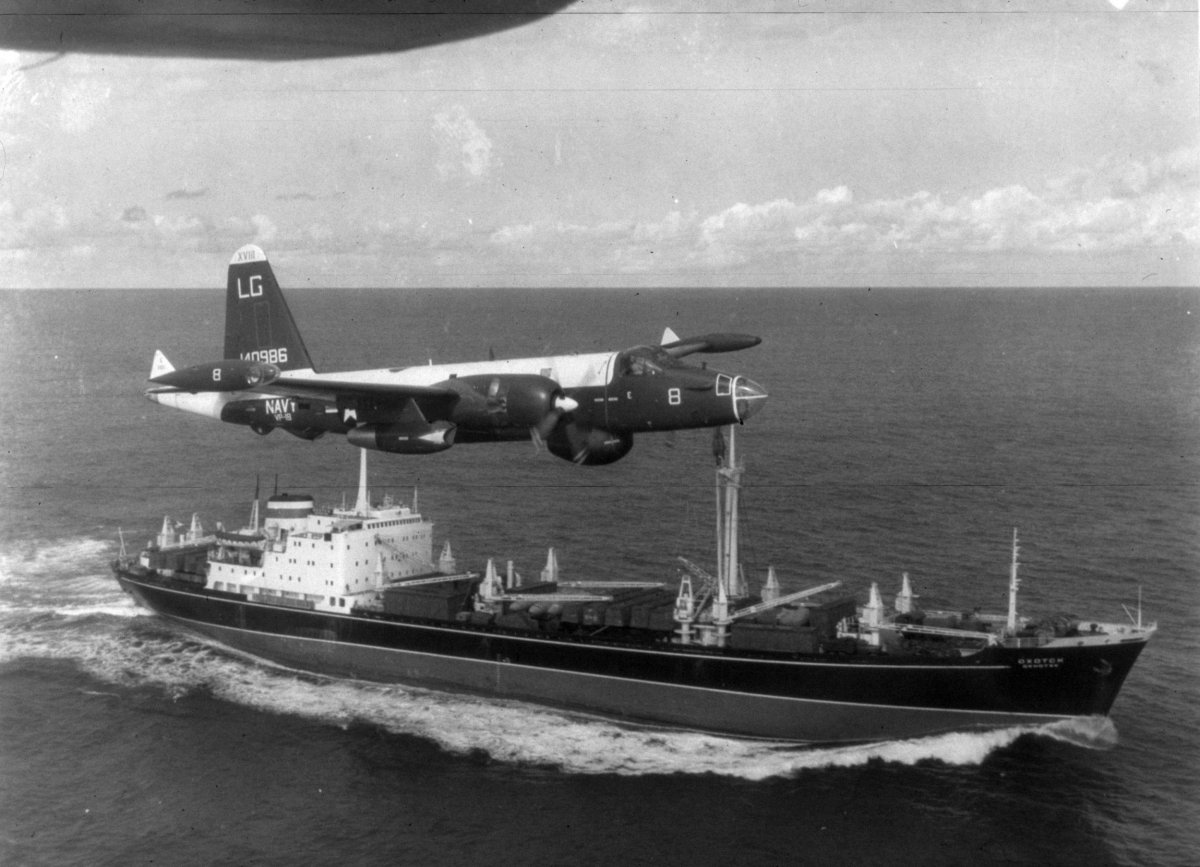A Russian senator has warned that President Donald Trump could once again bring the world to the brink of nuclear war with his decision to end a Cold War-era nuclear missile treaty and arms control measures.
Alexei Pushkov, a member of Moscow's upper house of parliament, condemned Washington's anticipated pullout of yet another treaty designed to restrict the number of weapons deployed by the world's leading military powers. Should Trump follow the U.S.'s 2002 exit from the Anti-Ballistic Missile (ABM) treaty by quitting the Intermediate-Range Nuclear Forces (INF) treaty as promised, as well as the Strategic Arms Reduction Treaty (START), Pushkov said Monday that "we will find ourselves at ground zero."
Pushkov, who serves as chairman of the Russian Senate's temporary commission on information policy and media relations, told the state-run Tass Russian News Agency that "the danger is that the United States is pushing the world to another Cuban Missile Crisis." He then added: "Back then we were lucky to avoid an exchange of nuclear strikes, and only God knows what all this may end up in now."

The clashing ideologies of victorious World War II allies, the U.S. and the Soviet Union, gripped the world for nearly half a century, with both sides competing for global influence as well as military and technological superiority. This bout resulted in a massive buildup of nuclear arms of various ranges and the Soviet Union's attempt to install such medium-range weapons of mass destruction on its Communist-run Caribbean ally Cuba—only 90 miles off the coast of Florida—prompted a U.S. military response in 1962.
A tense standoff ensued between the foremost superpowers on earth, but nuclear violence was ultimately averted thanks to ambitious rounds of diplomacy between President John F. Kennedy and Soviet First Secretary Nikita Khrushchev. Moscow agreed to withdraw its R-12 ballistic missiles in exchange for the U.S. removing PGM-19 Jupiter ballistic missiles from positions in Turkey.
The two powers signed the ABM treaty limiting anti-missile defenses a decade later in 1972. Fifteen years later in 1987, the INF was signed, banning the deployment of both nuclear and non-nuclear land-based missiles with ranges between 500 and 5,500 kilometers (310 to 3,420 miles). Shortly before the Soviet Union would collapse, the START treaty, aimed at reducing nuclear weapons on both sides, was signed in 1991 and later renewed by Russia and the U.S. in 2010.
Resurgent tensions between Washington and Moscow in the 21st century—alongside the military rise of other countries such as China and Iran and fears spurred by the "war on terror"—prompted the U.S. to question the relevance of these arms control treaties. National Security Adviser John Bolton, who served as U.N. ambassador under President George W. Bush, helped convince the former Republican leader to leave the ABM treaty in 2002 and has reportedly played a leading role in Trump's announcement Saturday to exit the INF.

The U.S. has long accused Russia of breaking the INF by developing a cruise missile known as the Novator 9M729 missile system. Russia has denied that the weapon exceeds the restricted range and accused the U.S. of breaking the treaty through the installment in Europe of the Aegis Ashore ballistic missile defense system, which Putin and other officials have claimed could be used offensively against Russia.
Kremlin spokesperson Dmitry Peskov said Monday that Trump's decision to leave the INF and potentially develop new weapons systems would cause Russia to "restore balance" in the military sphere. Former Soviet General Secretary Mikhail Gorbachev, who signed the INF alongside President Ronald Reagan, warned late last year that Trump and Putin risked sparking a new arms race with the collapse of the treaty.
In April, Gorbachev said that the current state of global tensions did not quite reach the degree of the Cuban missile crisis, but that a failure to conduct international diplomacy meant that military tensions between U.S. and Russia in "today's charged atmosphere can lead to big trouble."
Last year, historian Sheldon Stern argued that Trump had "flunked the JFK Cuba Missile Crisis test" in his threatening to unleash "fire and fury" against North Korea, though the president has since opted for diplomacy to settle that nuclear crisis.
Uncommon Knowledge
Newsweek is committed to challenging conventional wisdom and finding connections in the search for common ground.
Newsweek is committed to challenging conventional wisdom and finding connections in the search for common ground.
About the writer
Based in his hometown of Staten Island, New York City, Tom O'Connor is an award-winning Senior Writer of Foreign Policy ... Read more
To read how Newsweek uses AI as a newsroom tool, Click here.








